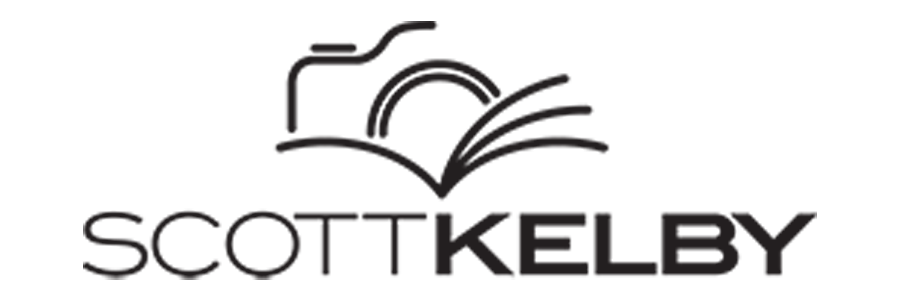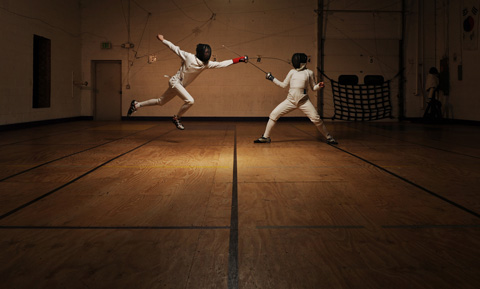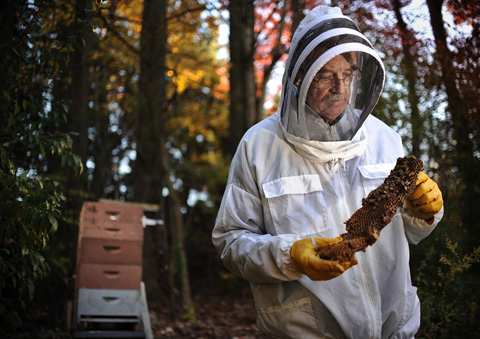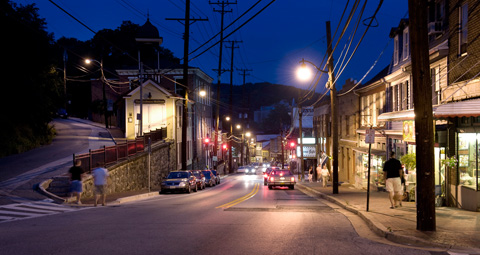Find a Niche — And Fill It
As much time as editorial photographers spend bitching and moaning about how things just aren’t the way they used to be, you’d think we were witnessing the death of an entire genre. Personally, I think nothing could be further from the truth. I actually think we are in the midst of a renaissance that will prove to have been one of the most exciting times to have ever been a photographer.
True, newspapers and magazines cry poor house as the pool of available assignments slowly drains. That’s because along with the digital explosion there has been a massive repricing of information. Presses, trucks and dead trees are no longer needed to disseminate information. So the economic pricing moat that used to surround the publishing process no longer exists.
Publishers used to be guys who sat in corner offices and wielded great power along with their printing presses. In 2011, my ten-year-old kid is a publisher. He doesn’t have a blog. He has three blogs. And he won’t even let me help him. He does it all himself, and for free. This low-infrastructure model is the future of publishing.
Which is to say, that while the bad news is that newspaper and magazines are having a hard time supporting their now-bloated infrastructure, we no longer need the infrastructure. Photographers and writers are now near-zero-infrastructure publications waiting to happen.
If you think about that for a moment, it starts to reset your compass. You can either be a pawn in an outdated economic model or think of yourself as a near-virtual company, ready and able to run on a shoestring. The challenge is figuring out a niche that exists that you can fill, and then how to create value by doing so.
That process is happening all around you every day, and will continue to do so until every bit of information — both visual and otherwise — exists in every form possible and available to everyone. That is a tall order, and it is not even close to being filled yet.
At the large end of the scale, companies like Twitter and Facebook didn’t even exist just a few years ago. The niche they filled was to facilitate the ease of connection between people. On a smaller and more industry-specific scale, SportsShooter did the same thing for sports photographers. Ditto Strobist, for people who want to learn about light — which also did not exist until 2006.
As photographers, we have the ability to discover and create publications that fill visual niches. We live in a visual world, and we are content producers.
Nearly twenty years ago, I created all of the photography for a traditional coffee table book on Columbia, MD. It was on assignment for a publisher, but I had enough visibility into the process to see that the economics of small-press book publishing were brutal even then. So much so that I almost felt bad taking royalty checks.
But with internet publishing, the costs and infrastructure all goes away. If you have the commitment to produce something of value and quality, there are many ways to monetize the value that a comprehensive local project can produce. The hardest thing is probably finding a niche about which you are passionate that is ripe for exploration.
For a couple of years now, I have been divorcing myself from the idea of shooting editorial for other people and instead learning to think more entrepreneurially. I am thinking hyper-local, and looking at the inefficiency of coherent, quality visual information about the county where I live. It just seems logical to explore the options that exist right at my doorstep as publishing continues its major upheaval. And the more I study it, the more opportunity I see.
I have been gathering words and photos for a while now, and I am just starting to see the organizational structures that will help to build it into something that can be of value to a large number of people. And that will be important when it comes time to monetize it. As an entrepreneur, you are a one-man (or -woman) band. You have to learn everything you can about the business ecosystem you create.
If you are still thinking, “Who will pay me to take pictures?” you are heading down a very, very competitive path. Better to think, “What can I explore, define and create with my camera that will create value?” And then, “How can I monetize that value?”
As information continues to decentralize, those photographers who can learn to think entrepreneurially will be in the driver’s seat to create and capture new business models. And those who don’t will have more and more to complain about every day.
You can read more of David’s musings, ramblings, tips, tricks, and other stuff over at Strobist.com






David, I love your website, it’s on my “visit every day” list!
Thanks, David, for a great guest blog. Strobist.com is also on my “visit every day” list and I’ve learned so much from your postings (Lighting 101 should be mandatory reading for everyone). Great meeting you on the FB tour in Boston…hope you do something like that again!
Scott, how about David doing something for KelbyTraining.com? 8)
–John
Strobist and HoCo360 are daily views for me as well. Seattle FlashBus was awesome, and Lighting in Layers is still a weekly view for me.
I think Mr. Hobby needs a Kelby class, and a Peachpit book. And a trip to Vancouver….
Very interesting post. The light-man talking about business, nice change of topic for a while indeed. Wish you the best for your business David.
Short and sharp, and to the point, to the one I like, actually. I don’t know which direction the world is going, but I try to catch up. David, thanks for a reminder there’s no time to stop, we all need action.
Would LOVE to see David Hobby as a KelbyTraining instructor…and at PSW Orlando! Just make his sessions opposite that Joe “TTL” McNally guy. ;)
One of the best blogs for lighting, flashes, strobes. Good read this.
As always, very very insightful Mr Hobby :D
Particularly the concluding paragraph!
ps I’m a daily visitor to Strobist too :D Thank you
Kingsley
Perth, Western Australia
Insightful musing Dave – many thanks.
And may I add my voice to the Strobist appearing on a Kelby training course :-)
Thanks for the post – it’s great to see a positive approach about this issue that seems to be bringing so many photogs down lately. Couldn’t agree more , it’s a matter of exercising your business vision, and there is a lot to be explored and created.
And yes, I agree with the folks above asking for David in PSW – He and Joe could take that flash bus to Orlando!
“If you are still thinking, “Who will pay me to take pictures?” you are heading down a very, very competitive path. Better to think, “What can I explore, define and create with my camera that will create value?” And then, “How can I monetize that value?”
Brilliant. Thanks for the great post, David.
What an excellent and bountiful view you have of the world, David! Totally hoping to engender that view of things in my own life. Thank you.
I love this bee keeper picture, too. How does one get the viewfinder to one’s eye throughou the netting…?
What a giving and bountiful view you have of the world! This must be very liberating, not being burdened by worrying how you’ll compete with all the other photogs out here. I hope to keep this view in my own life. Thank you.
I like the bee keeper image above; how does one compose an image through the viewfinder with bee netting on ones’s face…?
Interesting blog post David. Everything i know about lighting came from strobist.blog.com, Photography has become a second career of sorts for me thanks to you. I’d like to hear a more in-depth discussion of what you talk about here maybe you could guest on Scott’s “The Grid”.
All the best to you and your family
David – well said. Working as a photographer today is much more about being an entrepreneur and much less about following the traditional path.
I am reminded of what I was taught in Management school: entrepreneurs are most successful when they surround themselves with people better than they are at specific tasks they do.
So I would add to the advice with this: find people who have been there before and learn from them. Visit SCORE (Senior Corps Of Retired Executives), SBA (Small Business Association), and others. Not everyone is cut out for the realities of business. Educating yourself on what it takes business-wise and learning how to manage success is actually a better indicator of entrepreneurial success than just looking for a niche and filling it.
You are right on the money, no pun intended. The world of photography has changed and we either change with it or fall, cussing, along the side of the road. Saw you on the Bus Tour, and was glad I did. Thanks for your thoughts and advice, which is so good it hurts. Today, anyone with a camera thinks he/she is a photographer and going to make a killing selling his/her images. Doubtful. So we either find our niche or get lost in the shuffle. Thanks for the good thoughts on survival.
DH…a man who literally changed my career.
One of the best perquisites about DH is his impeccable skill with copy. Great post as usual.
Great blog post. Can’t wait to see what cooking next. All politics is local as Tip used to say.
How dare you give away all of this free and valuable business advice. Are you trying to put business schools out of business?
Just kidding, best response I’ve read to the moaning. Shoot what you love. If you can make a living doing it, you are a very lucky person. If the world is changing, you can either change yourself or change the entire rest of the world. Good luck on the latter.
What a great read – David! And so true!
Excellent read!
I’ve been a fan of DH since 2007 and he knows what he’s talking about.
Thank you!
Thank you David. When everybody are saying F22 you just say at least F4 and this is a light in the tunnel.
“What can I explore, define and create with my camera that will create value?” And then, “How can I monetize that value?” Replace camera with whatever tools you use in your business and that’s great advice no matter what you do.
Reminds me of some insightful commentary on monetizing content:
http://www.southparkstudios.com/clips/151040/the-underpants-business
If you are still thinking, “Who will pay me to take pictures?” you are heading down a very, very competitive path. Better to think, “What can I explore, define and create with my camera that will create value?” And then, “How can I monetize that value?” <— wow, excellent.
I also like what you mentioned about local projects. Great read.
Yes, it is very well put and a profound statement, but I don’t think it has much merit. It’s like saying “it sucks to be poor, you should think about how to make lots of money instead”. The truth is anyone can buy a Nikon d7000 at Costco and take great pictures. Maybe not as well as a true pro, but they can get 80% there, and for most people that’s good enough. The only way to make a good living in photography is to get out of photography!
100% agree with that! Thats why we need to do this better, a lot better actually. Pick some flashes and go outthere, show the army of amateurs that gr8 equipment isnt enough beeing a good photogr. it takes a lot more than just this.
Or do like David said…find a niche and fill it.
Reminds me of the old joke: How do you make a million dollars on Wall Street? Start with two-million dollars.
What Hobby is really saying is the days of making money taking photographs and selling them are over. In this new era of electronic media, there may be money in selling content that may include photographs along with other information, if you can build a niche. This is far from a given. Think about how many computer hardware companies from the ’80’s are still around?
hmmm… Good read, David! I appreciate you and your site and all that jazz… teaching is fun and rewarding, and if you have the hottest prosumer photo blog on the interwebs, and are on the sponsored workshop tour, it’s probably lucrative as well! But how much actual editorial content have you gotten to produce as of late? Editorial as we know it may be dyeing, but that doesn’t mean we (you) have to give up on it.
I am interested to see what you do with and where you take your hyper-local, efficient, coherent, and quality visual information…? As the dude who basically invented the profitable photo blog, I imagine that it has potential. I hope you get to tell some good meaningful stories, ones that impact our culture and our world, and I hope you get to make some money doing it!
I long for the days of oversized Life Magazines arriving in the mailbox with pages that get worn ragged by use and reuse over the years… with images that we’d actually THINK about. I long for a lustful stack of heavy coffee table photo books that get looked at over and over and over again…. images that get talked about and REMEMBERED! I’ve still got my stack, but less and less are we inundated with relevant quality, and more and more are we assaulted by insignificant noise in the form of colored pixels…. noise that has no real relevant impact but to distract us for a few moments while we procrastinate in front of our smudged iPads… noise that then get lost in the muddled memories of Charlie Sheen (who?), fast food beat-downs, and small, hard Weiners. I’m all for profitability, but culture sure is a lot more fun.
Long live the editorial photo essay! Long live paper!
As I heard someone say, ” You don’t get a job, you create one.” Great post.
Great post — especially the “who will pay me …” paragraph. I’d love to see some vignettes of photographers who have done this — monetizing a new niche. Ultimately, you’re still trying to find people to pay you to take pictures (either before or after the fact), just not in the traditional way.
DH, I love that beekeeper photo. Very well done. Nice fill on the face, nice splash of color in the trees. Very natural.
WoW! This’s a major paradigm shift in the way we think about our art and business. Definitely a game changer. Thanks David.
If you don’t already, read Techdirt and their series on a similar topic they call “reason to buy.” It covers the music industry mostly but the core issues are very similar.
David, insightful as always. Thanks so much for everything you’ve done with Strobist and continue to do.
David,
I subscribe and read the strobist blog every day and articles like this are a great insight to the business. I look forward to reading the next.
Congratulations on your post David!
One thing is for shure: no matter what way the publishing industry goes, it will always need content. And our duty is to produce content.
Another thing is the way we think about the process: globaly and localy are blending into each other, thus creating opportunities for all of us.
Cheers!
David, this is the kind of thinking that invigorates the mind and is a catalyst for creative directions for photographers. Thanks.
Are you kidding me?
Hobby is my hero but this is a little cloudy and borders on drival. I’ve read it three times now and it still sounds the same.
I guess if you are pulling down a couple of hundred thousand in advertising and teaching you can afford to create now and worry about money later. I can’t. One would be much better off figuring out how to make money now, and then create for that.
Am I missing something here? If so, someone fill me in.
Sorry DH, I don’t mean to sound rude.
Hi TC,
I feel you are being a bit harsh on David.
If you look at what he himself has done over the past few years. He has successfully transitioned from a newspaper photographer to a lynchpin in today’s online photographic education. He teaches (either by invitation, or by running his own seminars), he publishes educational lighting DVDs, and he runs one of the most high-profile lighting blogs on the internet and draws advertising revenue from it. He is a great example of a photographer who has looked around him, seen opportunities and created a wonderful life for himself.
His challenge to us is a simple one: what can you do that will bring you happiness and an income.
Gary Vaynerchuk has written an interesting book on earning an income online from what you love: “Crush It”. Well worth a read.
Warm regards,
Roger
Roger:
I didn’t mean to be harsh. I just think it goes against all business norms to suggest creating something first, then find a market for it. Can you imagine the “inventions” we would have if all inventors invented first, then tried to find a need for their inventions? I know David is very successful and has worked hard for it. Like I said, he (and Joe McNally) is my hero and I may be misunderstanding what he is saying.
I’ll check out the book too! Thanks!
Tim
I agree with T.C. I don’t think Mr. Hobby when he started the blog envisioned that he could derive a self-sustaining income from it. It was by chance (but granted, a lot of hard work) that he struck a chord with an audience and momentum took him the rest of the way. Without having built (lucked into?) a critical mass following, do you for a second believe he would be invited to teach or run seminars worldwide? Hardly. Compared with other well-known photographers, Mr. Hobby’s photography is average at best, but he’s able to succeed because so many people now know who is, irrespective of any mass appeal his photography may or may not have. It’s easy to say “fill a niche and monetize it (like I did)” when you are already on the foothills of the mountaintop. Today, if nobody knew who David Hobby was and he had just been laid off from the Baltimore Sun, then I guarantee that piece of advice would ring pretty hollow to him too. It’s not my intention to be rude and discount all the hard work he has put into his blog business — and I commend him on his success and for what he’s done as far as disseminating lighting education — but I think we all need to be careful of annointing someone as a business guru in any particular field, simply because they got lucky. If Mr. Hobby can replicate his business success in other ventures, then I’m all ears to his dispensing business advice. But until then, I see him as no different than that Robert Kiyosaki (“Rich Dad, Poor Dad”) guy.
David, I totally agree with what you say. As photographers we have to look at our skills and passions and go create a niche. To make a living from photography you need to be a business person first and then a photographer with all the skills thrown into the mix to keep a business running including admin, bookkeeping and marketing and everything that goes with it.
It’s interesting to learn that light did not exist before 2006. I guess those were the dark ages ;-)
What are you suggesting as an income stream with this, selling ad space on your blog?
Selling ad space on you blog is clearly not what this article is about. It’s about seeing where there is a need or problem or where value could be added and finding a solution. Its simple business and its a good article. It’s not about rushing to make money, as you can’t make money if you’ve not added any value.
Selling ad space and selling educational dvd’s are just two revenue streams for the Strobist, that have arisen by David looking around seeing a niche and creating value.
It’s always more difficult to make money out of a profession that 1000’s would kill to do for free, so you need to carve out a niche.
Thanks Hobster… good article.
No offense Barry, but you missed it. He’s talking about creating his own publication, at a low on-line cost. All publications, print or digital only, thrive on advertising revenue. I’m curious to know what percentage of revenue David generates through advertising and educational sales, but I would be it is over half his income stream.
In case you are curious about my “niche” I do lots of corporate imaging for oil services, shipping, financial services, and ship management companies. That generates the bulk of my income. The rest is mostly from lifestyle and music projects used in advertising. Residual income comes from investment gains in equities over the last couple years.
Like you said “… 1000’s would kill to do for free …” and there is the main problem with photography as a creative profession today. David stated “As photographers, we have the ability to discover and create publications that fill visual niches. We live in a visual world, and we are content producers.” He’s talking about publications, in case you missed that point. Publishing generates revenues mainly from selling ad space.
FWIW, ads are just one of four potential rev streams I have associated (so far) with this project — and probably the 3rd best of the 4 revenue streams, actually.
And for the record, this is a start-from-zero project. I am treating Strobist (along with my commercial shooting) as my day job while I build this up from absolute zero. Which is to say that the fact that I already publish Strobist offers no embedded advantage for this entirely local project. So in that sense I am doing what anyone else who already had another job (doctor, accountant, wedding photographer, whatev) could do.
-DH
How to create value in my photographs is something I am going to concentrate on. Thanks for the insight.
An excellent and thought provoking post. But who pays the bills that keep coming during this phase – ‘ “What can I explore, define and create with my camera that will create value?” And then, “How can I monetize that value?”’? I think we will all be juggling two or three jobs in the future, with photography just one of them.
Good point James. Currently doing that now, luckily the second job actually incorporates photography… the hard part about answering this question is that for the majority of us it takes a good amount of time. However earning yourself a name and a niche carries so much more value and weight, it’s more than worth the time and struggle getting there. What helps me through is the fact that I work w/ my wife, and she is very supportive.
Hi James & Mario,
I agree. I can see this taking shape very soon. Certainly, it is something that will soon apply to me. Like you Mario, I will be able to use photography in Job 2. In fact, it’ll be one of the selling points.
David Hobby is right. The world of professional photography is changing. I feel that that change also brings with it indications of how to deal with it.
Roger
David just gave everyone a big kick in the pants. Now Go!!
Forget the article, the photos are stunning. Pictures will always sell – somehow, some way. Figuring out the market is the hard part… for sure. People who love photography will stick with it – even if they have to do it for free.
Interesting article. Having been a long-time journalist, editorial shooter and commercial shooter, I agree with the facts of the publishing industry and its demise. Last year, here in Colorado, we watched the closing of the Rocky Mountain News. This is a publication I had been a stringer for and – had I stayed in journalism – would have hoped to be working for. And for what? To arrive at work one day to see there was no paper anymore. Sad but true.
I have been shooting professionally since I was a senior in high school working for the local paper. Today, 30+ years later I attempt to continue my (consumer-based) photography business and teach photography at the college level.
Your article simply does not address the economic reality of earning a living and paying the bills. While shooting for the creative sake of shooting is worthy, how does one begin to pay for $4,000 digital bodies which are obsolete in two years, terabytes worth of storage, an continual barrage of software and computer upgrades, not to mention the bills from the internet provider, electric company and your mortage?
I ask my colleagues this. I ask my students this. From the business-ignorant I am usually met with a response that I’m a buzz-kill. From those in the same boat as I am, the bewilderment is shared.
So, I leave with one question. How does one pay for all this?
This is a great post David! I think every person sees the Internet differently. I see it as opportunity. Thanks for inspiring David!
I just got the dvds and it’s sweeeet!
Thanks Dave
Thanks for that David …… inspiring and yet challenging!!
I have to disagree with you completely Dave, I think your scope on the situation is heavily influenced by you shifting gears from shooting photos to teaching… While it is true that editorial content isn´t raising (but that´s the fault of this economic crisis), the web 2.0 is only profitable for people doing photo teaching DVD´s and seminars, there´s no real money for the shooter who´s actually shooting for web 2.0, it is as easy as that, ad agencies, PR agencies, direct clients, etc. Are still (and will be in our lifetime at least) the source of economic income for a photographer wanting to shoot photos.
Like with Zack Arias the problem you both have is that you have been immersed in the net for so long that you have a distorted view of what´s the day to day of a photographer now (2011), and I can bet you that if you had a real website (not the zenfolio thing you have) and you started calling PR, Ad agencies, magazines, etc. to look for work and you will get a lot of work.
But it is more comfortable to say what you said here and sell DVD´s and seminars (nothing against it though, you are teaching a new generation great things), it is more comfortable to sit in your computer and not shoot. If you have lost your passion for shooting but you have found a passion on teaching you should be honest with the people reading this article and your blog and say it.
I´m truly dissapointed to see you have lost your north as a photographer, because there´s work out there for anyone who´s looking for it and it is still well paid to make more than a decent living out of it, the thing is I think both you have lost the passion for shooting photos and found joy in teaching and that´s OK, but if this isn´t the case then should try to REALLY to step out a bit of the net to see how things work in the real world before writting these things. It is easy to stop doing editorial for others when you have the blog as your source of income, however other shooters have to shoot commercially and use their spare time to do their personal projects.
I don´t think people like you or Zack Arias (who´s always afraid on what to do, blah, etc.) would have a hard time getting to shoot for advertising agencies, PR agencies, direct client, if you had the courage to actually make the calls and arrange meetings, the thing is if you want to do it???. Heck I´m getting a lot of well paid jobs through advertising and PR agencies, editorials for magazines, portraiture and product photography, my rates are higher than most people (Blinkbid rates) and I am not as known around the globe as you guys are… If I can do I what´s stopping you from doing it???? I´m not trying to be rude, I´m trying to get a couple of honest answers.
Can’t agree more. Well said.
Karl-
FYI, the business model I am working on has absolutely nothing to do with Strobist, nor does it get a boost from my being well-known as a photo blogger. It is far more closely associated with what I was doing a month after I left college, shooting for a community newspaper.
Suffice to say that I have not lost my passion for shooting. (No idea where the hell you got THAT.) In fact, what I want to do is to combine what I have learned as a newspaper shooter for 20 years and a blogger for 5 and to see if that can yield new approaches to photography that are not constrained by my previous line of thinking.
To be honest, I am a reluctant teacher. I prefer shooting. But the process of the former has given me a lot of insight into the latter.
I did not go into much detail here, as this was a guest post for Scott’s blog mostly designed to get people thinking in an abstract way. I am not really sure how you can say I have “lost my north” as a photographer, not knowing any more about what I am doing that what was posted here. But FWIW, if “keeping one’s north” means sticking to the same old model as a photographer when the whole information world is being completely disrupted, then you can have it. I watched newspapers do that exact same thing for far too many years — first from the inside and now from the outside. To predictable effect.
Everyone’s situation is different. You do whatever you want. I would not think of criticizing your biz plan because I know nothing about it. Even if I did know, I would not criticize it. If it works for you, great. I am not big on dogma. If it works, it works.
I am just trying to get people to include a little less bitching and a little more thinking outside of the box. That’s all.
Put another way, I would be more receptive to hear what Chase Jarvis’ ideas are on this subject. Although Mr. Jarvis has a vested interest in the Creative Live education venture, unlike with Mr. Hobby you don’t get the feeling that the blog or education is where Mr. Jarvis derives the bulk of his income. It’s the commissioned shooting for the ad agencies that pulls in the money for him (at least that’s the impression), and so what Mr. Jarvis has to say about what photographers can do in their business would have truer resonance.